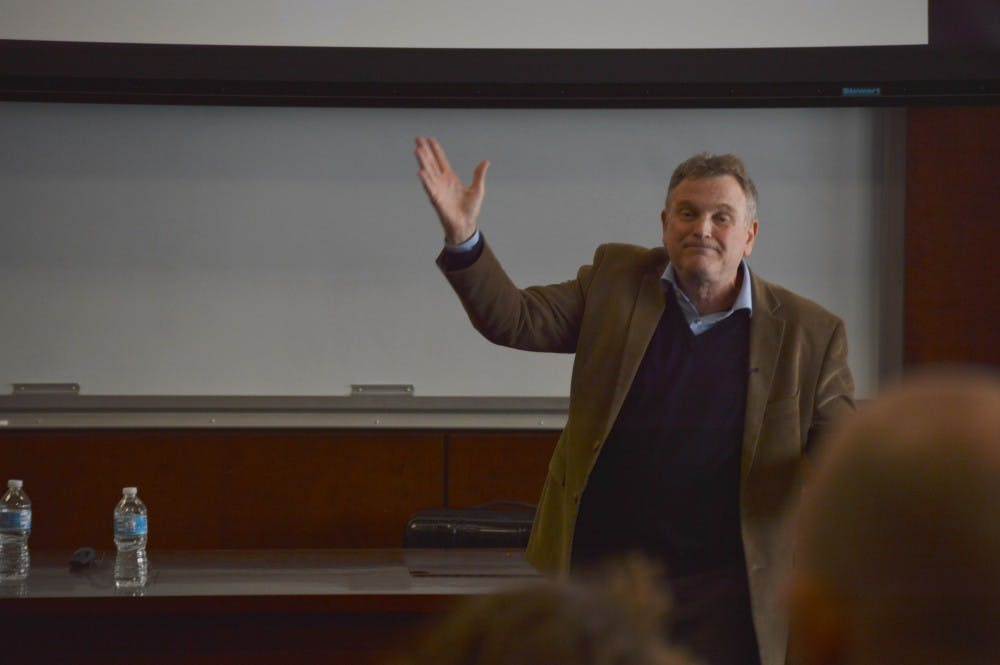
Jonathan Wolff, the composer for 75 primetime network TV shows including Seinfeld, talked to Penn students about how he used the law to further his career at an event on Feb. 27.
Wolff, who proclaimed himself the “busiest composer” and “busiest dealmaker” in Hollywood, said his understanding of law had shaped his career and financial success as a musician.
“Before I had a business plan, studios treated me like a Swiss army tool for musical chores. Anything that smelled like music, I did. But that’s not a career, because every time the phone rang, I went in a different direction, and the phone told me which way to go,” Wolff said. “My highest-earning TV shows were paying out about the same amount as my losers were."
Wolff said he later learned to navigate the industry with the help of his lawyer, Steve Winogradsky, an attorney with over 30 years of experience in the music industry. Wolff said Winogradsky found a legal loophole for him after he complained about the ways royalties work, allowing him to earn an amount that he actually "deserved."
“That’s what a good lawyer can do for a client—listen to his problems, complaints, and do something about it," Wolff said.
Students at the event said they appreciated Wolff's candor.
“He was very business-savvy,” said Penn Law student Gustavo Cardona. “I especially liked how he talked about how he used both smart business tricks as well as more shameless methods, that no road is too shallow to take.”
Wolff was invited to campus by the Penn Intellectual Property Law Group and the Entertainment and Sports Law Society. In the hour-long event, Wolff described the inner-workings of the Hollywood industry and his interactions with copyright law through licensing and royalty negotiations and disputes.
He talked at length about what he had learned about contractual rights while creating scores for B-movies, many of which was often generic and reusable.
“I created a deal—a non-exclusive master license—which means I owned the music,” Wolff said. “So I could use the same music for another movie, and this went on for twenty-some odd pictures.”
“All it took was a thimble full of talent and some contractual knowledge. That is what you can do for your clients,” Wolff added.
Penn Law student and PIPG member Don Marra said many of the attendees were interested in a career in copyright law.
“He engaged his audience and adapted to his audience so it didn’t feel like just another lecture,” said Marra. “It was interesting that he was able to do so much business without an agent, while a lot of the audience is probably going to be an agent.”
“His main message was to differentiate yourself from others, and he changed a couple things in the industry,” Cardona added. “He talked a lot about his life and his business, but it would have been nice to hear some of his actual work.”
The Daily Pennsylvanian is an independent, student-run newspaper. Please consider making a donation to support the coverage that shapes the University. Your generosity ensures a future of strong journalism at Penn.
Donate




